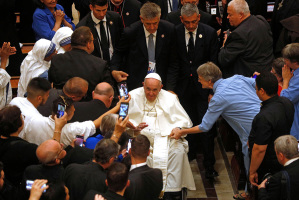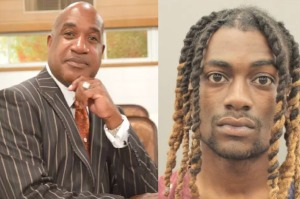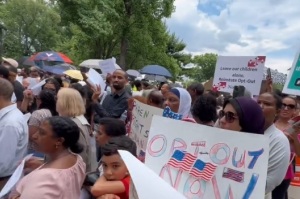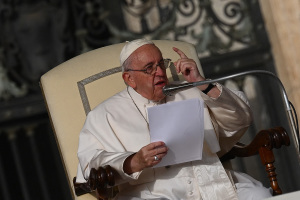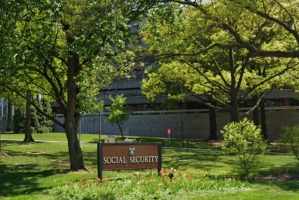Two Texas State Baptist Conventions Pose Contrasting View on Capital Punishment
DALLAS TX - Two State Baptist conventions voice contrasting views on capital punishment. The Baptist General Convention of Texas calls for a suspension on the death penalty by its Texas Christian Life Commission, while the Southern Baptists of Texas Convention agrees with capital punishment as a just and appropriate means of punishment.
The BGCT funded CLC addresses issues in race relations, religious liberty, moral issues, economics and daily work, family, and Christian citizenship. Currently, the debates flare across the arena of moral issues and religious liberty, as the BGCT supported a Jan 10 legislation that would allow Texasa juries the sentencing option of life without parole as an alternative to the death penalty. One commissioner opted for the call for a moratorium be separated from support of sentencing options.
All but two of the BGCT commission members approved the report examining issues related to capital punishment. The report states "the practice of capital punishment in our nation and state is an affront to biblical justice, both in terms of its impact on the marginalized in society and in terms of simple fairness."
The BGCT report noted the Scriptural limits placed on revenge, as reflected in "an eye for an eye and a tooth for a tooth," and the move towards retribution to "transforming initiatives." They commented upon the creative confrontation and constructive community building methods of Jesus as means to avoid even limited retaliation.
The BGCT particularly notes the racial discrimination involved in carrying out the Texas death penalty. Mostly the penalty impacts racial minorities, the poor, juvenile offenders and inmates who are mistakenly convicted. The penalty in Texas is formidable because the U.S. ranks third in the total number of executions worldwide, with Texas carrying out a third of those executions.
From the Southern Baptists of Texas Convention comes a reaffirmation by the Texas Ethics and Religious Liberty Committee of the view expressed in a resolution passed by the Southern Baptist Convention in 2000 that capital punishment is a just and appropriate means by which the civil magistrate may punish those guilty of capital crimes. The SBC resolution affirmed by the SBTC ethics committee on Jan. 23, meanwhile, recognizes the importance of fair and equitable application of the death penalty without reference to the race, class or status of the guilty. "We support fair and equitable use of capital punishment by civil magistrates as a legitimate form of punishment for those guilty of murder or treasonous acts that result in death," the SBC resolution states.
SBTC committee member Howard Thompson, pastor of Baxter Baptist Church in Athens, stated, "Some perceive a contradiction in the biblical Christian's opposition to abortion and euthanasia and simultaneous support for the death penalty. There is, however, no contradiction. The same motive exists in each case because we affirm that every human is created in the image of God. We are not dismissing the life of a murderer -- we are affirming the value of the life of the victim."
In an upcoming editorial for the SBTC journal Southern Baptist Texan, editor Gary Ledbetter challenged using moratorium as a remedy to capital punishment, arguing that the death penalty has a sound biblical foundation based on the justice and holiness of God.
"Better that we do the hard thing. Put the blindfold back on justice and provide adequate defense for all the accused. The burden must remain on our legal system to provide equal treatment under the law. Doing away with problematic penalties takes the burden to reform off those we have assigned to do just that thing."
Cy Fletcher of Baytown, one of the BCGT commissioners, supported the call for a moratorium but voted against adopting the report on capital punishment, questioning how the principles would be applied to the use of deadly force by police or prison guards.
"I support the option of life without parole," Fletcher said. "Yet that raises a question. How do we hold people for life against their will without the threat and use of deadly force? In the future, are we going to hear protests that the impersonal shock of an electrical fence is murder by proxy and the split-second decisions of a prison guard should be viewed the same way?"
Bobby Broyles, pastor of First Baptist Church in Earth, noted the report's reference to 16th-century Anabaptist Menno Simons' argument that if a murderer genuinely repents and turns to God, then that person is a new creation and a brother in Christ. If the murderer does not repent, then executing him would rob him of future opportunities to repent and be spared from punishment in hell.
"Sending somebody into eternity without Jesus is a grave thing to consider," Broyles said.
Charles Kemble from First Baptist Church of Universal City spoke of the transforming power of God's love on even the most abused and abusive person.
"Whereas electricity and chemicals can kill people, love can change people," he said.
Taking a different perspective, Ledbetter continued, "A nation that determines a penalty for a crime and then does not regularly assign that penalty breaks faith with its people and the God that established it."
He referenced the story of Noah where bloodguilt was demanded by the image of God in the victim. "It is thus the person of God who is offended by murder whenever man wrongly takes the prerogative of God on himself. God specifically assigns this mandate to governments," he said, citing Romans 13:1-7.
While the SBTC committee's position reaffirms the SBC capital punishment resolution in 2000, the BGCT's call for a moratorium is similar to that of the Texas Conference of Churches, an ecumenical communion of 13 Protestant, Catholic and Greek Orthodox denominations with whom the BGCT recently resumed dialogue.
BGCT Texas Christian Life Commission director Phil Strickland told the Dallas Morning News that while the state convention has never formally joined the Texas Conference of Churches, the two groups have had a strong collegial relationship for many years. BGCT representatives met with TCC leaders last year for half-day sessions in six Texas cities to discuss the role that people of faith can play in public policy areas such as capital punishment.
Strickland emphasized the important role people of faith play when they bring their message into the state policy arena. "Faithful voices are those without special interests. They call out for change making life better for all Texans," Strickland said to those gathered in San Antonio and McAllen. "People of faith get closest to Christ when they bring justice into society."
Talks over capital punishment, the state budget and campaign financing were held in six cities during a Texas Conference of Churches Interfaith Policy Institute. Over 200 Texans from the BGCT Christian Life Commission, United Methodist Women, Texas Impact and the American Jewish Congress gathered for interfaith worship and a plenary session during which two long term advocates within various faiths dialoged about their work and experiences.
By Pauline C.
















